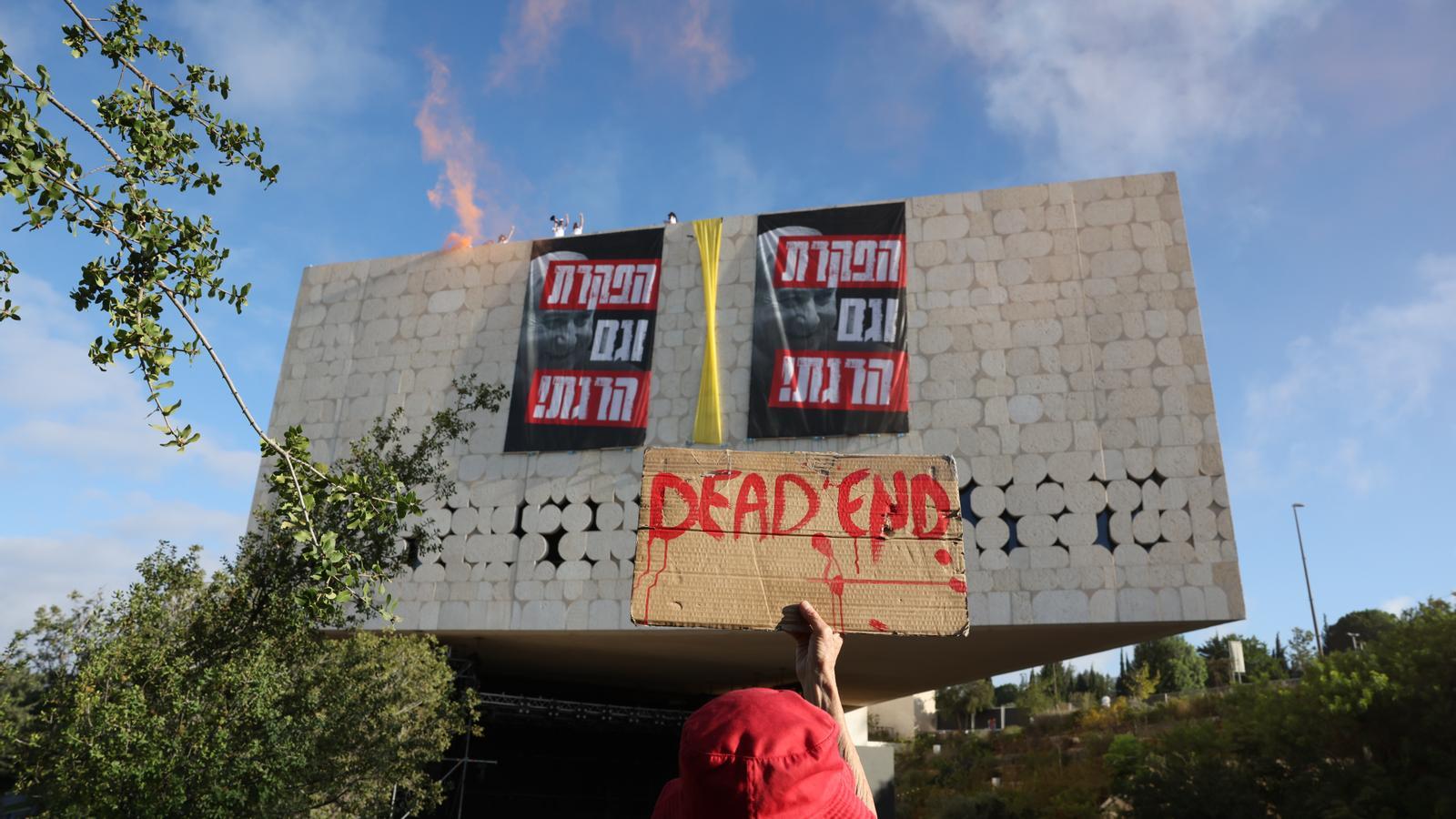The UN denounces an Israeli attack on peacekeepers in Lebanon.
About seventy Palestinians have died in one day as the Israeli army advances into Gaza City.

BarcelonaThe United Nations peacekeeping mission in Lebanon (UNIFIL) denounced this Wednesday that Israel attacked its personnel in the south of the country. Israeli drones reportedly launched four grenades at the UN peacekeepers in what the organization described as "one of the most serious attacks" since the ceasefire was announced last November. Furthermore, the Lebanese government reported that at least four people were killed in Israeli attacks on various sites in the south of the country.
One of the grenades against UNIFIL landed less than 20 meters from its personnel and UN vehicles, and three others landed about 100 meters southeast of the town of Marwahin, according to a statement. The drones then reportedly returned behind the so-called Blue Line, which marks the border between Lebanon and Israel.
UN peacekeeping personnel were working to remove obstacles blocking access to a mission position near the dividing line, and the Israeli army had been informed in advance of the operation. Since the ceasefire, Israel has established positions inside Lebanese territory along this Blue Line, creating a security zone. This has prevented tens of thousands of people from returning to their villages, even to rebuild homes or clear debris.
Israel has long denounced UNIFIL as useless, an argument also adopted by the US administration of Donald Trump. In fact, the peacekeeping mission is only guaranteed a presence in Lebanon until the end of next year, after which it must withdraw its troops. Lebanon, on the other hand, maintains that it needs UNIFIL to fulfill its commitment to completely disarm Hezbollah.
Israel advances into Gaza City
The irreverence of the Israeli army in Lebanon is even more evident in the Gaza Strip, where its troops are steadily advancing into the capital, ignoring repeated international calls to halt the offensive. This Wednesday, they advanced to Sheikh Radwan, one of the largest and busiest neighborhoods in the city center, and are now just a few kilometers from the center of Gaza City. Along the way, the army destroyed buildings and tent camps that housed thousands of displaced Palestinians.
At least 67 people died in the Strip on Wednesday, according to Al Jazeera, citing hospital sources. Of these, 38 died in the besieged capital, which is subjected to constant aerial and artillery bombardment. Furthermore, at least eleven of the fatalities were killed while waiting to receive humanitarian assistance.
In this context, fleeing to the south is becoming increasingly difficult and expensive. The displaced explain that they must pay between $700 and $800 for a ride, around $1,000 for a tent—if one is available—and commissions of 30 to 40 percent to intermediaries. "We have no work and no food. Flour costs me more than $200," a Gaza resident told Al Jazeera in a broadcast this morning.
United Nations estimates that 20,000 people have managed to flee the city in the last two weeks, but nearly a million residents remain trapped. Humanitarian officials warn that the impact of a full-scale offensive will be "beyond catastrophic."
Incidents outside Netanyahu's residence
Meanwhile, pressure is also growing within Israel. This Wednesday morning, a group of protesters climbed onto the roof of the National Library in Jerusalem and demonstrated outside the home of Strategic Affairs Minister Ron Dermer, demanding that the government reach an agreement for the return of the hostages. In the same city, several incidents were reported near the residence of Prime Minister Benjamin Netanyahu. Tens of thousands of people gathered in the afternoon near the Israeli leader's home to participate in a march that culminates another day of protests in Jerusalem.
But Benjamin Netanyahu's government is not stopping its war machine. Israel has already begun mobilizing thousands of reservists—between 40,000 and 60,000, according to various sources—to reinforce the ground offensive on Gaza City, as part of the operation. Gideon's Chariots II, with which it claims to now control 75% of the territory. Prime Minister Netanyahu reiterated on Sunday that the goal is to "conquer all of Gaza, defeat Hamas, and free all the hostages." According to Israeli authorities, the Islamist organization is still holding 48 people, 20 of whom are believed to be alive.
